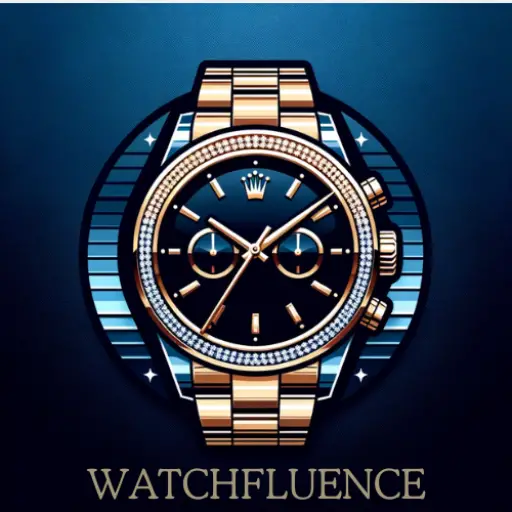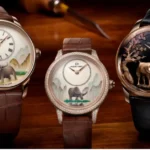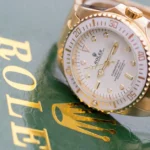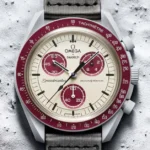British watch brands hold a prestigious position in the world of horology. We often associate watchmaking with Swiss precision, but the history of British watchmaking is rich with innovation and skill. Esteemed British watchmakers have graced the industry with remarkable craftsmanship, setting standards in watch production since the early days.
History and Heritage of British Watchmaking

British watchmaking boasts an impressive legacy, marked by innovation and exquisite craftsmanship. From groundbreaking technical advances to the creation of iconic timepieces, this heritage is entwined with the stories of pioneering figures and companies that have stood the test of time.
Influential Figures and Companies
The landscape of British horology has been shaped by exceptional individuals and firms. George Daniels, regarded as one of the greatest watchmakers of the 20th century, revolutionized the field with his co-axial escapement design. Roger Smith, an apprentice of Daniels, continues this legacy on the Isle of Man, crafting watches that embody the pinnacle of this fine tradition. Tracking back to the 18th century, John Harrison captured the attention of the world with his marine chronometers, devices crucial for navigation at sea, while George Graham, an innovator in his own right, contributed significantly to the advancement of chronographs.
Another prominent name in the history of British watchmaking is Edward John Dent, the founder of Dent, a company known for its precision timekeeping instruments, including the iconic clock at the Palace of Westminster, commonly known as Big Ben. The legacy of these individuals and companies is not just in their innovations, but also in setting the standard for quality and precision in watchmaking.
The Quartz Crisis and Its Aftermath
The advent of the Quartz Crisis in the 1970s and 1980s marked a challenging period for traditional watchmaking industries across the globe, including Britain. This era saw the introduction of battery-powered quartz timepieces, which were significantly cheaper and more accurate than their mechanical counterparts. The crisis led to a precipitous drop in demand for mechanical watches, and by extension, a decline in traditional watchmaking skills and companies.
However, despite the overwhelming domination of quartz technology, certain British watchmakers remained steadfast in their commitment to mechanical watchmaking. Companies such as Garrick have helped to keep these traditional skills alive, focusing on the craft of hand-built mechanical watches and restoring heritage to British shores.
Resurgence of British Watch Brands
In more recent years, we’ve witnessed a resurgence of British watch brands that strive to blend traditional techniques with modern designs. This renaissance is driven by watch enthusiasts who value the artistry and history of classic mechanical timepieces. The revival is not just about producing watches, but is a testament to Britain’s horological impact, both past and present, on the global stage. Newer brands and watchmakers draw inspiration from their illustrious predecessors to create beautifully crafted watches that hold a unique place in the market.
Entrepreneurs and watchmakers have taken bold steps to reclaim Britain’s watchmaking heritage, with Roger W Smithand other modern craftsmen leading the charge. These new-age artisans continue to push the boundaries of innovation while respecting the deep-rooted traditions that have defined British watchmaking for centuries.
Contemporary British Watchmaking
British watchmaking is currently experiencing a renaissance, blending traditional craftsmanship with modern technological advancements. Brands are innovating and capitalizing on British horological heritage while boldly stepping into niche markets.
The Role of Innovation and Technology
Modern British watchmakers like Bremont and Christopher Ward have been instrumental in pioneering in-house movement development, which has historically been dominated by Swiss movements. Bremont, particularly, has been at the forefront of horological innovations, crafting durable watches that push the boundaries in terms of precision and robustness.
In addition, companies like Loomes and Robert Loomes have revitalized traditional watchmaking techniques, adapting them for contemporary timepieces that honor British watchmaking history while incorporating today’s technology.
Emergence of Microbrands
- Microbrand Impact: Microbrands such as Pinion Watches are emblematic of this trend, creating unique, limited-run timepieces that cater to a growing demand for individuality and craftsmanship in watch design.
- Consumer Appeal: The appeal of microbrands lies in their distinct narratives and the personalized experience they offer to customers, often at more accessible price points than their more established counterparts.
Collaborations with Aviation and Military
Aviation Partnerships:
- Bremont has established collaborations within the Aviation industry, designing pieces inspired by the mechanics of aircraft and the heritage of British aviation.
Military Watches:
- Both Bremont and Christopher Ward produce military watches, providing durable and reliable timepieces that meet the rigorous standards required by armed forces.
Design Philosophy and Craftsmanship

British watch brands stand out due to their unwavering commitment to design philosophy and craftsmanship. They blend traditional methods and modern innovation to create timepieces that are not just watches, but legacies worn on the wrist.
Attention to Detail and Materials
We British watchmakers pride ourselves on our meticulous attention to detail. In brands like Arnold & Son, this manifests through the use of fine materials, such as bronze cases, and the intricate design of enamel dials. The Schofield Watch Company showcases its dedication by ensuring even the smallest components are hand-finished to perfection.
Materials are chosen not only for their aesthetics but also for their durability and longevity. Loomes & Co, for example, uphold British-made watches’ reputation by employing robust materials that endure over time, ensuring each piece’s heirloom quality.
Achieving Horological Excellence
Striving for horological excellence, several luxury brands incorporate Swiss-made movements known for their precision. The blueprint for our craftsmanship combines this high-level mechanism with the charm of British design. Anordain stands out with its meticulous hand-wound movement, demonstrating a harmonious marriage of function and form.
It’s not just about the internal mechanisms; the pursuit of excellence extends to the watch’s face. Enamel dials, which are renowned for their longevity and distinct sheen, exemplify the luxury brand’s dedication to craftsmanship that stands the test of time.
Cultural Impact and Global Presence

British watch brands have leveraged the rich heritage of Great Britain and the precision of Swiss components to create a unique presence in the global market, appealing to collectors and watch enthusiasts worldwide.
British Brands on the World Stage
British watch brands are increasingly becoming symbols of luxury and craftsmanship on the international stage. By integrating Swiss mechanics into their designs, brands such as Tribus not only honor their made in England roots but also ensure the high quality that the Swiss watchmaking industry is known for. These timepieces reflect a fruitful collaboration between Great Britain’s innovative spirit and Switzerland’s renowned precision, propelling the British watchmaking industry to compete with established players from Japan and Switzerland.
Collectors and Watch Enthusiast Community
For the watch enthusiast, a timepiece is more than an instrument to tell time; it’s a piece of art and a slice of history. British luxury watch brands have captivated this community by offering high-quality timepieces with a story. Each British watch, whether it features Swiss components or is entirely produced within the UK, carries a narrative of British heritage and meticulous craftsmanship that resonates deeply with collectors across the globe, fostering a dedicated following.
FAQ-British Watch Brands
What sets British watch brands apart from others in the watch industry?
British watch brands are known for their unique blend of traditional craftsmanship, innovative design, and a rich heritage of timekeeping excellence. They often draw on the UK’s historical significance in maritime navigation and pioneering advancements in horology. Brands like Bremont, Christopher Ward, and Roger Smith showcase a commitment to precision, durability, and a distinctive British aesthetic, often incorporating elements of the country’s rich history and cultural heritage into their designs.
Are there any British watch brands that offer luxury watches?
Yes, several British watch brands offer luxury watches that compete on the global stage. Roger W. Smith, for example, is renowned for its high-end, bespoke timepieces that are entirely handcrafted in the UK. Bremont is another luxury brand that focuses on durability and precision, with a strong emphasis on aviation and military history. These brands exemplify the luxury segment of British watchmaking, combining sophisticated design with exceptional mechanical prowess.
How can I ensure the authenticity and quality of a British watch?
To ensure the authenticity and quality of a British watch, purchase from authorized dealers or directly from the manufacturers. Most reputable British watch brands provide certificates of authenticity and warranty cards. It’s also beneficial to research the brand’s history, manufacturing process, and customer reviews. For collectors and enthusiasts, attending watch fairs and exhibitions can offer deeper insights into the craftsmanship and heritage of British watchmaking, allowing for a more informed purchase decision.
If you liked this blog post about the topic: British Watch Brands, don’t forget to leave us a comment down below to tell us about your experience with it.





